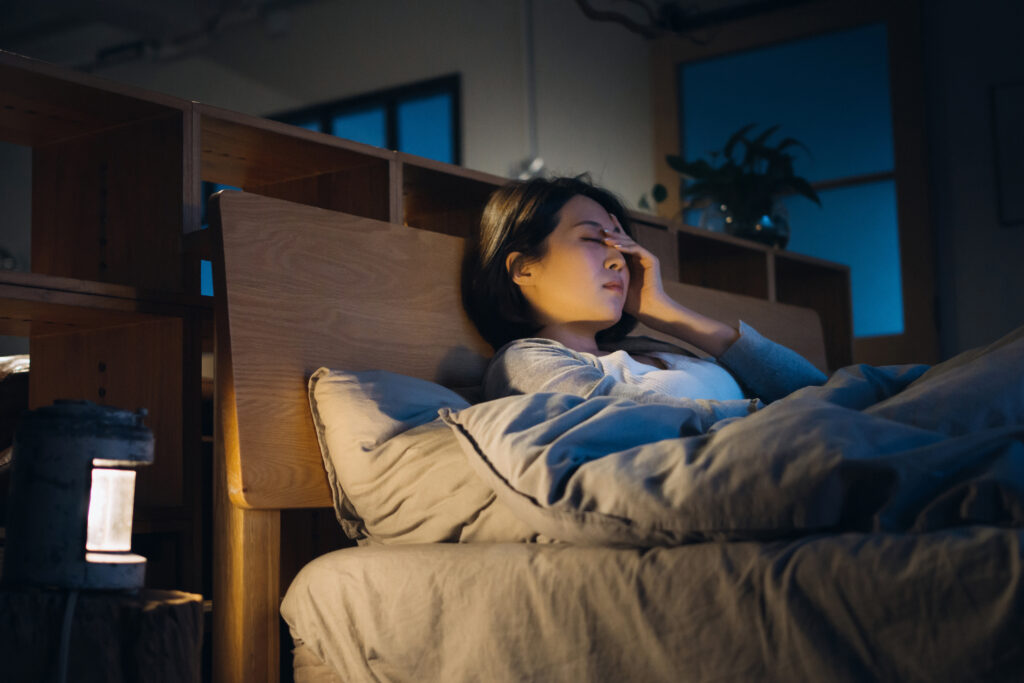Unpredictability: Sleep disruptions
Sleep can be disrupted for PSP families for a number of reasons. When PSP are at work, family members may have a hard time falling or staying asleep due to worry. The timing when PSP leave and return home can be out of sync with family members, interfering with their sleep and sleep routines. When PSP need to sleep in the day, family members change their activities to maintain quiet.
Both the shift work and the unpredictability of PSP work can interfere with sleep. In some PSP sectors, such as volunteer firefighting, there may be an expectation for a PSP to be on call often, leading to the possibility of call-ins at any time. This disrupts both their sleep and the sleep of their spouse/significant other (SSOs) and family members.
Unexpected call-ins and overtime can also lead to inconsistent schedules for children. Wake up, bedtimes, and nap times might get rearranged due to the unpredictability of PSP work.
Why is it so hard to sleep when the PSP is at work?
PSP’s daytime sleep is out of sync with family life

- Family members feel like they have to be especially quiet.
- Routines and extracurriculars for family members can be disrupted.
- Weekends and holidays when the whole family tends to be home are particularly challenging.
- Babies and young children who may cry create noise that interferes with the PSP’s sleep.
- Pets who play and need to go outside may also be at odds with the need for daytime sleep.
- All these issues were magnified during COVID-19 when family members stayed home to work or attend virtual school.
- PSP sleeping in the day throws off everyday family routines such as mealtimes.
- When PSP sleep during the day, their bedtime is often out of sync with the family that night.
Try: Skill-building Exercises
Need Something More?
Check out our self-directed Spouse or Significant Other Wellbeing Course.
References for this page (click to expand)
Ananat, E. O. & Gassman-Pines, A. (2021). Work schedule unpredictability: daily occurrence and effect on working parents’ well-being. Journal of Marriage and Family, 83(1):10-26. https://doi.org/10.1111/jomf.12696
Bochantin, J. E. (2010). Sensemaking in a high-risk lifestyle: The relationship between work and family for public safety families. PhD Thesis. ProQuest Dissertations Publishing.
Cowlishaw, S., Evans, L., & McLennan, J. (2010). Work-family conflict and crossover in volunteer emergency service workers. Work & Stress, 24(4), 342–358. https://doi.org/10.1080/02678373.2010.532947
Cox, M., Norris, D., Cramm, H., Richmond, R., & Anderson, G. S. (2022). Public safety personnel family resilience: A narrative review. International Journal of Environmental Research and Public Health, 19(9), 5224. https://doi.org/10.3390/ijerph19095224
Friese, K. M. (2020). Cuffed together: A study on how law enforcement work impacts the officer’s spouse. International Journal of Police Science & Management, 22(4), 407-418. https://doi.org/10.1177/1461355720962527
Hill, R., Sundin, E., & Winder, B. (2020). Work–family enrichment of firefighters: “satellite family members”, risk, trauma and family functioning. International Journal of Emergency Services, 9(3), 395-407. https://doi.org/10.1108/IJES-08-2019-0046
Landers, A. L., Dimitropoulos, G., Mendenhall, T. J., Kennedy, A., & Zemanek, L. (2020). Backing the blue: Trauma in law enforcement spouses and couples. Family Relations, 69(2), 308-319. https://doi.org/10.1111/fare.12393
Regehr, C., Dimitropoulos, G., Bright, E., George, S., & Henderson, J. (2005). Behind the brotherhood: Rewards and challenges for wives of firefighters. Family Relations, 54(3), 423-435. https://doi.org/10.1111/j.1741-3729.2005.00328.x
Tuttle, B. M., Giano, Z., & Merten, M. J. (2018). Stress spillover in policing and negative relationship functioning for law enforcement marriages. The Family Journal (Alexandria, Va.), 26(2), 246-252. https://doi.org/10.1177/1066480718775739
Watkins, S. L., Shannon, M. A., Hurtado, D. A., Shea, S. A., & Bowles, N. P. (2021). Interactions between home, work, and sleep among firefighters. American Journal of Industrial Medicine, 64(2), 137-148. https://doi.org/10.1002/ajim.23194

